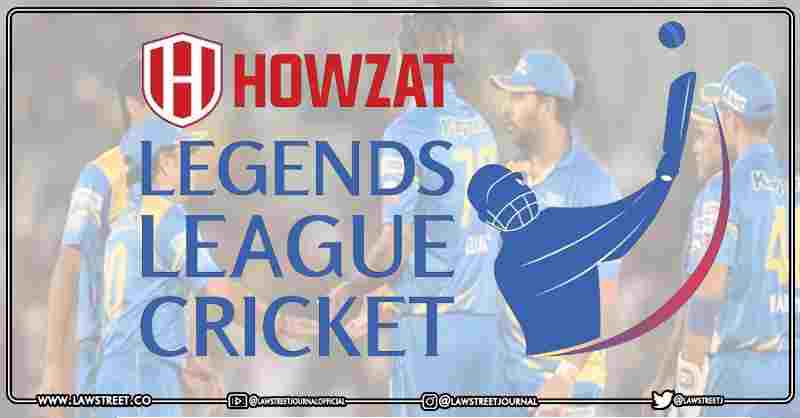The court was hearing a lawsuit brought by a man who claimed that the tournament was his concept and that he had discussed it with the respondent, who then went on to organise the league with other defendants.
On January 20th, 2022, in the case of Samir Kasal v. Prashant Mehta and Ors, the Honble Delhi High Court, refused to stop the holding of the next Legends League Cricket event, stated that no one can claim copyright on the game of cricket, nor on its evolution from five-day test matches to the more modern style of T-20 cricket.
In the light of discussions, the league organisers are directed to maintain a clear account of their earnings and expenditure in respect of the matches that are being organised in Oman (UAE) and file the same in court within one month of the completion of the league matches.
The court will issue summons to the defendants in all permissible ways, which must be returned to the registrar, and written statements must be filed within thirty days of the date set for the completion of the pleadings, which is April 26th, 2022.
As per the schedule, the Legends League Cricket tournament will begin on Thursday, with three teams participating: the Indian Maharajas, Asian Lions, and World Giants. Yuvraj Singh, Virender Sehwag, Shahid Afridi, Shoaib Akhtar, Kevin Peterson, Jacque Kallis, and others are among the retired cricketers expected to participate in the matches, which will be hosted at the Al-Amerat Cricket Ground in Oman.
The current lawsuit was filed by one Samir Kasal, who claimed in his suit that the tournament was his invention and that he had discussed it with the respondent, Prashant Mehta, who then went on to organise the league with the help of other defendants.
Kasal told the court that organising a tournament for retired players in a two-innings style with each side batting for 10 overs in each innings was his idea.
He further claimed that it was his idea to hold the matches in areas with a sizable Indian population.
As a result, it was claimed that the Legends League Cricket tournament, which was supposed to take place in Oman, had been stolen from him.
Further, Justice Menon pointed out that the concept of a ten-over cricket match is not new, having been adopted in 1997 in New Zealand, and that retired cricketers have been playing matches all over the world, implying that the plaintiff's proposal is not original.
"The idea of a Ten Overs cricket match, with two innings, was introduced way back in 1997 in New Zealand. Retired cricketers have been playing matches all around the world, and therefore, that too, is not an original idea of the plaintiff, as it is evident from the documents presented by the defendants. Test matches have also been held in countries that do not play cricket. The participation of the Indian diaspora in various cricket venues, particularly in the Middle East, is also common knowledge. Thus, none of the features of the concept of the plaintiff reflect original thought.
The defendants also claimed that because each of these ideas has been in the "public domain" for a long time, i.e., since their conception in 1997, 2015, and so on, no one can claim exclusive rights to any of them. In 2015, league matches were held. The IPL has been around since 2007. For a long time, matches between retired legendary cricketers have been held for various purposes, including public causes. To claim that the plaintiff had the exclusive right to seek an injunction against the defendants' Legends League Cricket tournament because he conceptualised a league match with retired cricketers in a T-10 Test Format to be played at venues where there is an Indian diaspora is stretching it too far.
The only basic resemblance between the applicant's proposal and the league being organised, according to Justice Menon, is that they both feature the game of cricket, which no one may claim as a copyright.
Over the course of centuries, several permutations and combinations in the format of playing "the game of cricket" have evolved. As a result, it's acceptable to assume that no copyright can exist in the growth of cricket over time, from a "5-Day Test Match Series" to the most recent T-20 Matches. "Innings" and "overs" would be used in any such permutations and combinations. This would also necessitate identifying an avenue and determining the match's duration and length. Finally, players are always chosen for specific matches, "according to the court.
The Honble High Court concluded that even if the plaintiff's claim that his combination is unique is accepted, even though there are enough variances to show that the league's model is not a replica of his invention,
Finally, the court observed that while the court must weigh the harm to the plaintiff if no injunction is granted against the injury to the defendants if the injunction is granted and the plaintiff fails after the trial, it is clear that the plaintiff has attempted to cause more harm to the defendants than benefit to himself by approaching the court at the last minute. The sole reason for holding matches is to profit financially. Thus, while the defendants, the players, the sponsors, the media partners, and the general public would suffer a loss that could not be compensated for if the plaintiff lost after trial, the plaintiff's interests may still be protected if the matches were held. As a result, the balance of convenience is in the defendants' favour.








